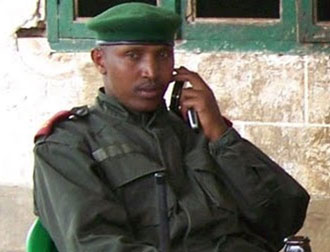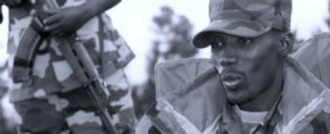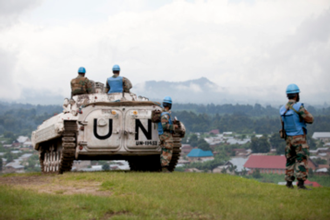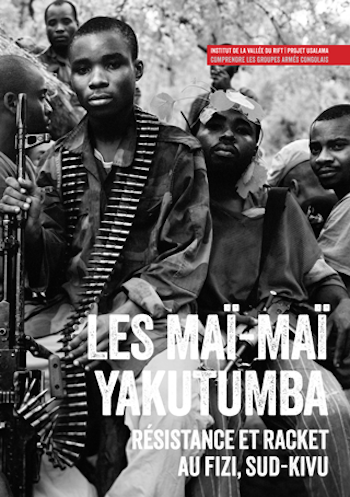Ituri
This Usalama report by Dan Fahey sets out the background to the years of conflict in Ituri district of the north-eastern DRC. The particularly vicious nature of war in Ituri––including large-scale massacres, widespread sexual violence, and the use of child soldiers––led to interventions by the European Union and United Nations, and prompted the International Criminal […]
Strongman of the eastern DRC

About this publication This Usalama Project Briefing presents a profile of one of the M23’s most important commanders, General Bosco Ntaganda. Despite his indictment by the International Criminal Court on charges of recruiting child soldiers, murder, rape, and sexual slavery, Ntaganda still has a considerable following in M23 ranks. The latest fighting comes in spite […]
M23’s operational commander

This Usalama Project briefing presents a concise biography of the M23’s senior commander, Sultani Makenga, in the eastern Democratic Republic of the Congo (DRC). It describes his rise through the ranks, his earlier membership of the Rassemblement congolais pour la démocratie (RCD) and the Congrès national pour la défense du people (CNDP), and his relationship with […]
From CNDP to M23
This Usalama Project report explores the 2012-2013 M23 rebellion in the eastern DRC. It also discusses the implications of the rebellion for the DRC’s eastern neighbours, Rwanda and Uganda, who have been accused of aiding and abetting the M23. ‘Despite the Congolese army’s sporadically strong resistance, well-armed M23 soldiers have dealt it several humiliating defeats and […]
The perils of peacekeeping without politics

This Usalama Briefing Paper sets out the history of UN involvement in the eastern DRC and analyses the challenges that continue to face the mission, even as it prepares to deploy a new intervention brigade, charged with neutralizing and disarming rebel groups and bolstering Congolese state reform. ‘The UN’s ability to play a constructive role […]
Sud-Kivu
Ce rapport Usalama par Koen Vlassenroot décrit la dynamique historique à l’origine des mouvements armés au Sud-Kivu, en mettant plus précisément l’accent sur la période située avant la Première Guerre du Congo. La province du Sud-Kivu se trouve au coeur du conflit qui sévit dans l’est de la RDC. Depuis la fin de la Deuxième […]
Maï-Maï Yakutumba

Ce rapport du Projet Usalama examine les Maï-Maï de William Amuri Yakutumba, un groupe qui, initialement, ont été démobilisé après la Deuxième Guerre du Congo (1998-2003). Cependant, après avoir peiné de trouver d’autres moyens de subsistance, ils ont remobilisé, soutenus et exploités par les élites politiques à Kinshasa et la diaspora du Fizi qui visaient […]
Les Banyamulenge
Ce rapport Usalama par Jason Stearns et al. examine les Banyamulenge, une communauté Tutsi vivant dans l’est de la RDC qui s’est trouvée au coeur des multiples conflits qui sévissent de manière intermittente dans l’est de la RDC depuis deux décennies. Alors que la dernière rebellion Banyamulenge a pris fin en 2011, des groupes armés […]
Le commandant opérationnel du M23
Ce briefing du Projet Usalama présente une biographie concise du commandant en chef du M23, Sultani Makenga. Il décrit son ascension dans les rangs, son adhésion précédente au Rassemblement congolais pour la démocratie (RCD) et au Congrès national pour la défense du people (CNDP), et sa relation avec l’actuel ministre rwandais de la défense, James […]
Du CNDP au M23
Ce rapport du Projet Usalama explore les racines de la plus récente rébellion dans l’est de la RDC. Il discute aussi les implications de la rébellion sur les voisins à l’est de la RDC, le Rwanda et l’Ouganda, qui ont été accusé de complicité avec le M23. «Bien que l’armée congolaise ait opposé une résistance, […]
